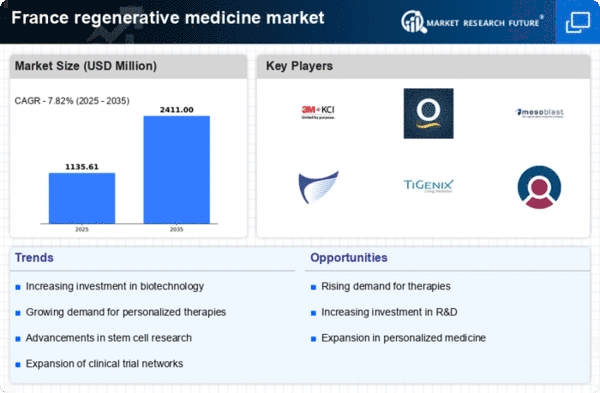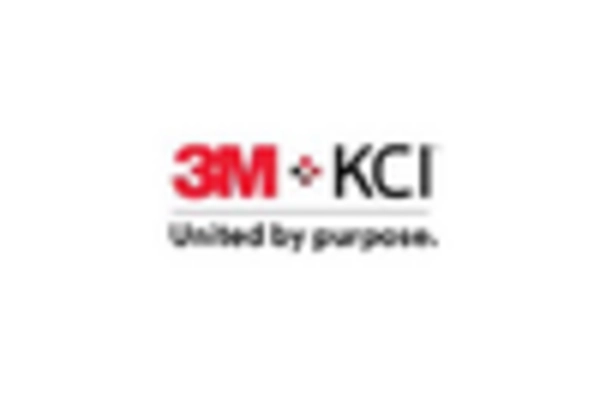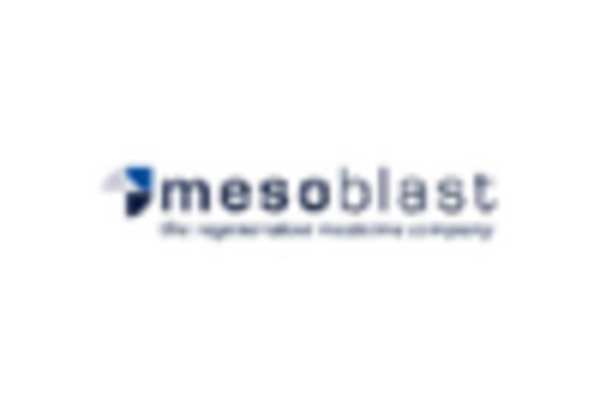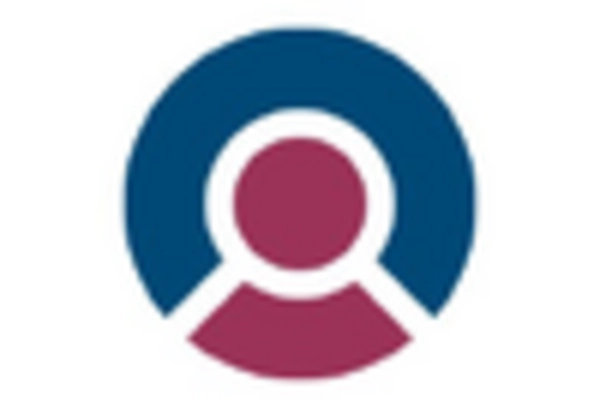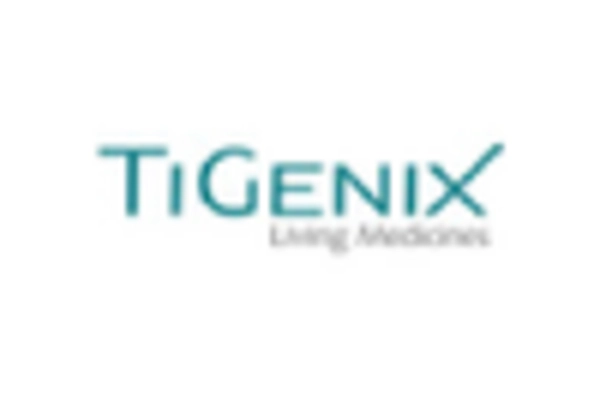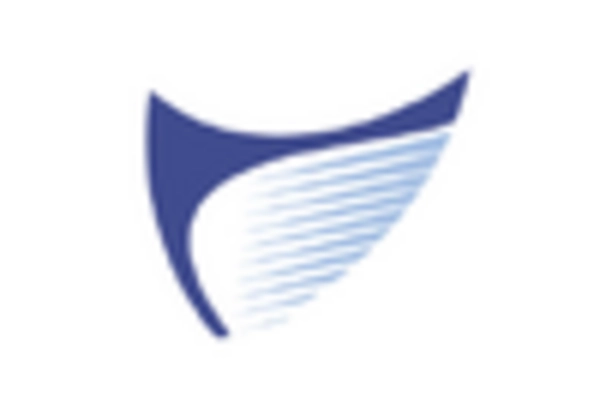Rising Incidence of Chronic Diseases
The rising incidence of chronic diseases in France is a critical driver for the regenerative medicine market. Conditions such as diabetes, cardiovascular diseases, and neurodegenerative disorders are becoming increasingly prevalent, necessitating innovative treatment options. According to recent statistics, chronic diseases account for approximately 70% of all healthcare expenditures in the country. This alarming trend is prompting healthcare providers and policymakers to explore regenerative medicine as a viable solution to address these challenges. The potential of regenerative therapies to repair or replace damaged tissues and organs positions them as a promising alternative, thereby driving growth in the market as stakeholders seek effective interventions.
Growing Demand for Personalized Medicine
The regenerative medicine market in France is experiencing a notable surge in demand for personalized medicine solutions. This trend is driven by an increasing recognition of the unique genetic and biological makeup of individuals, which necessitates tailored therapeutic approaches. As a result, the market is projected to grow at a CAGR of approximately 15% over the next five years. The French healthcare system is adapting to this shift, with hospitals and clinics increasingly investing in advanced technologies that facilitate personalized treatments. This growing demand for individualized therapies is likely to propel the regenerative medicine market forward, as stakeholders seek to develop innovative solutions that cater to specific patient needs.
Increased Public Awareness and Acceptance
Increased public awareness and acceptance of regenerative medicine are contributing to the growth of the market in France. Educational campaigns and outreach programs have successfully informed the public about the benefits and potential of regenerative therapies. This heightened awareness is fostering a more favorable perception of these innovative treatments, leading to greater patient willingness to explore regenerative options. Surveys indicate that approximately 65% of the French population is now open to considering regenerative therapies for various health conditions. This shift in public sentiment is likely to encourage healthcare providers to incorporate regenerative medicine into their practice, thereby driving market expansion as demand for these therapies continues to rise.
Supportive Government Policies and Funding
Supportive government policies and funding initiatives are playing a pivotal role in shaping the regenerative medicine market in France. The French government has recognized the potential of regenerative therapies to transform healthcare and is actively investing in research and development. For instance, funding programs aimed at fostering innovation in biotechnology and regenerative medicine have been established, with allocations reaching several million euros annually. These initiatives not only encourage academic and industrial collaboration but also facilitate the translation of research findings into clinical applications. As a result, the regenerative medicine market is likely to experience accelerated growth, driven by enhanced research capabilities and increased access to funding.
Advancements in Biomanufacturing Technologies
Recent advancements in biomanufacturing technologies are significantly impacting the regenerative medicine market in France. Innovations in cell culture techniques, bioreactor designs, and tissue engineering methods are enhancing the efficiency and scalability of regenerative therapies. For instance, the introduction of automated biomanufacturing systems has the potential to reduce production costs by up to 30%, making therapies more accessible to patients. Furthermore, these technological advancements are likely to improve the quality and consistency of regenerative products, thereby fostering greater confidence among healthcare providers and patients alike. As a result, the regenerative medicine market is expected to benefit from these developments, leading to increased adoption of advanced therapies.


